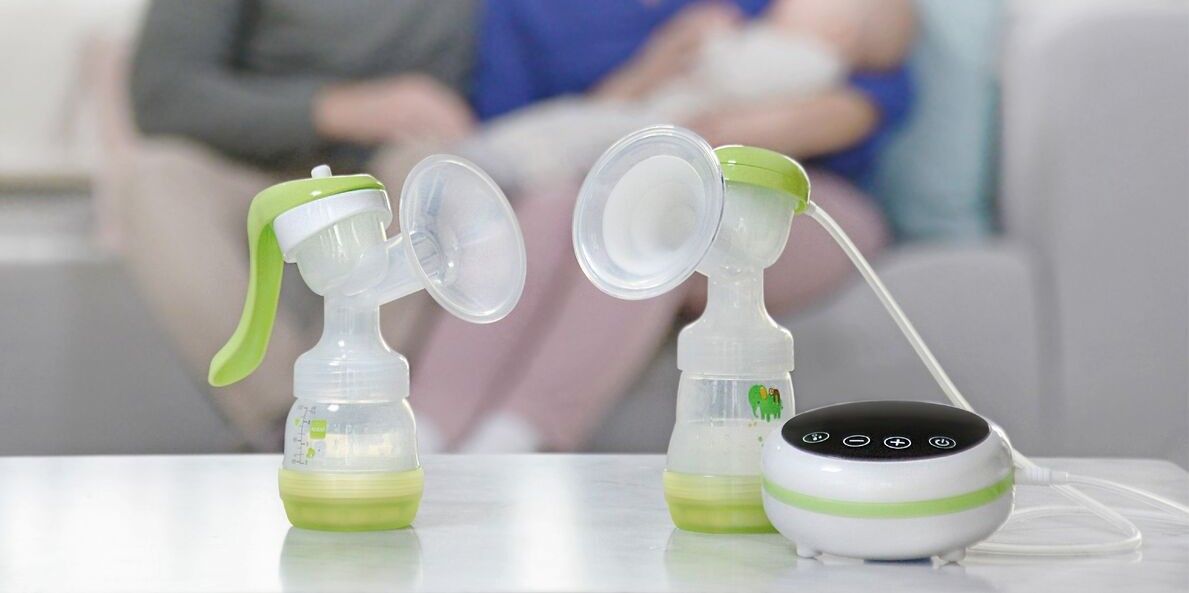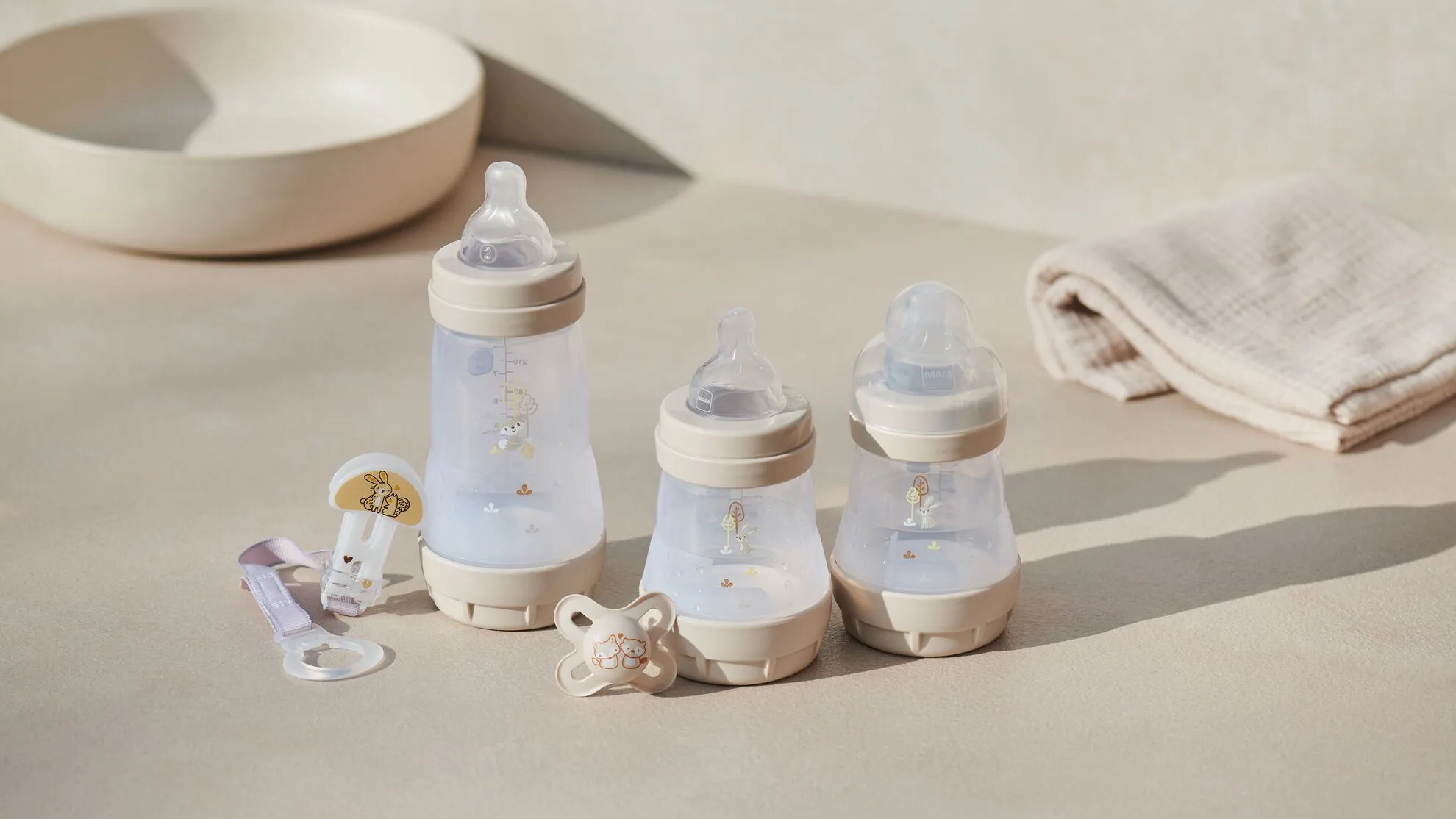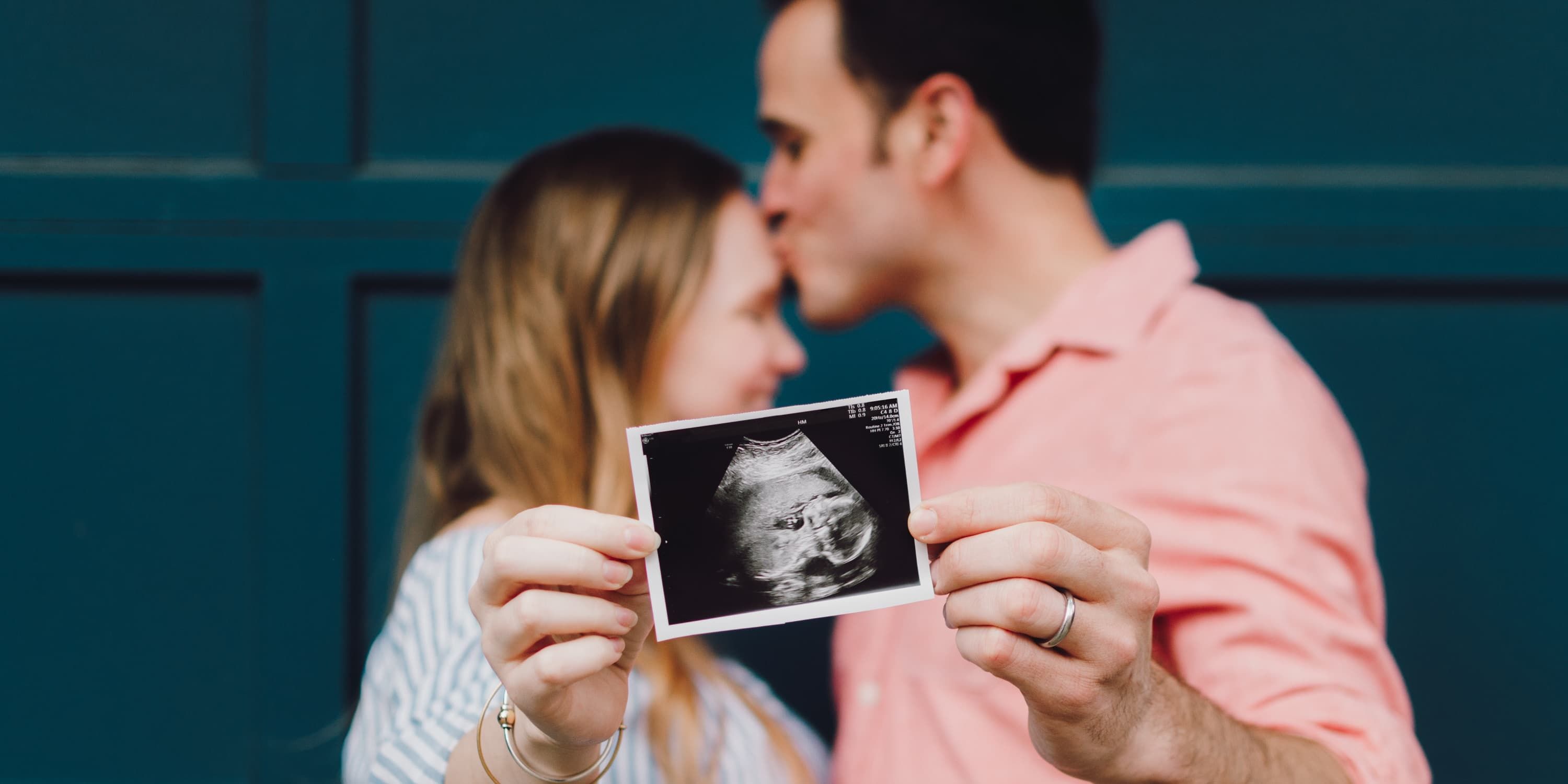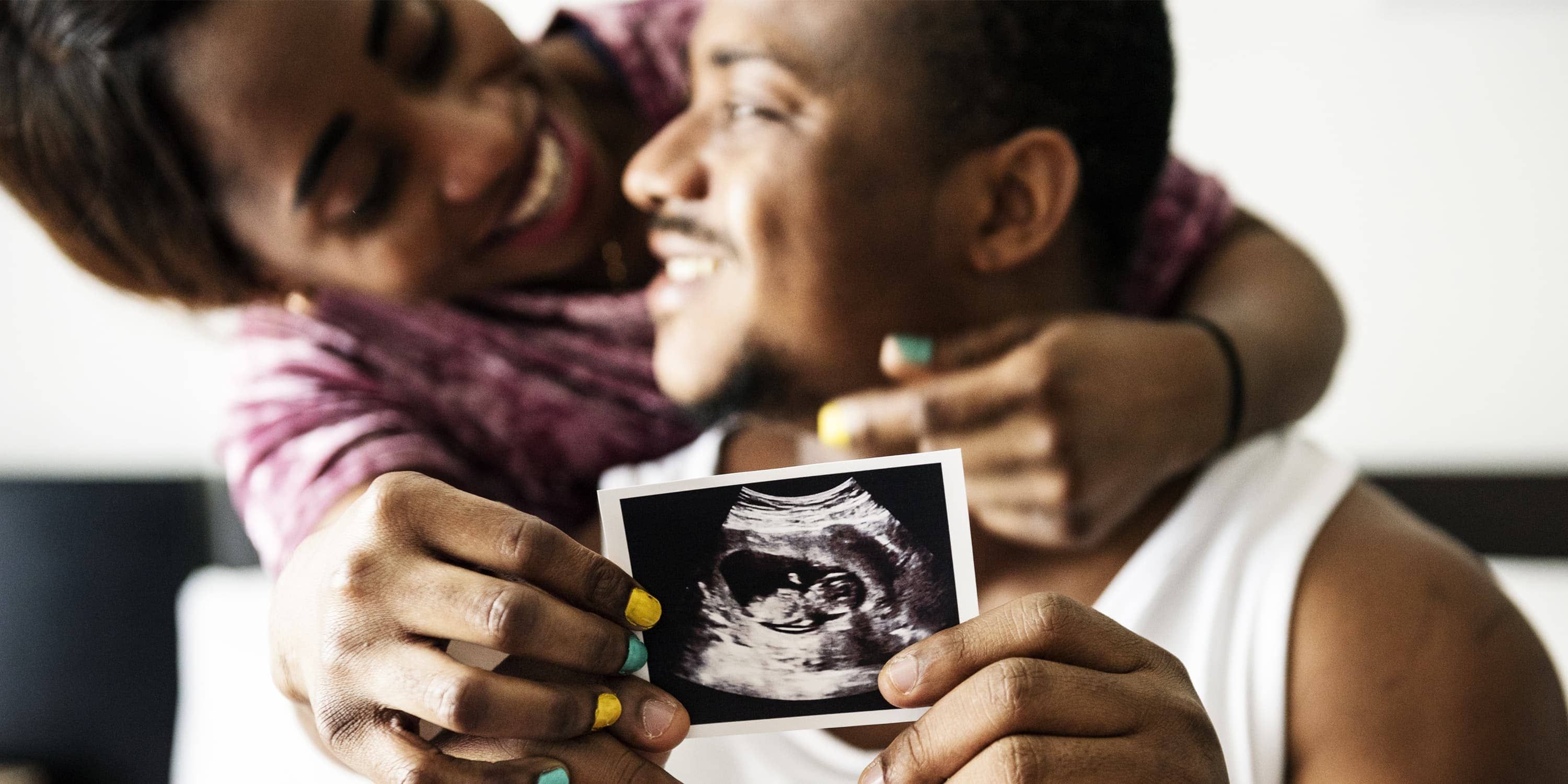The start of the second trimester is when some women are starting to show. Read on to discover why your baby is moving so much, whether the shape of your bump reveals anything about the sex and what else happens in the 14th week of pregnancy.
What's going on inside you at 14 weeks pregnant?
The baby continues to move around busily since it still has plenty of space in the amniotic sac. These movements are important as they stimulate the brain and muscles and provide new stimuli. These create the connections between brain, nerves and muscles. In the 14th pregnancy week, the foetus is floating in around 100 ml of amniotic fluid.
Your baby is now roughly the size of a hen's egg.

All the organs and limbs are formed. Apart from "training" various capabilities, the foetus now has one main task: grow, grow, grow! This mostly involves the body at this time. Growth of the head slows down so that the proportions become increasingly more "normal". The legs and neck have also become a little longer. Movements are now easier, and your little one can even wiggle its toes.
Your baby's growth spurt causes the placenta to enlarge and the volume of blood and amniotic fluid to slowly increase.
How do you feel at 14 weeks pregnant?
It is very likely that you cannot feel many of your baby's movements yet because it is still too small – sensations in your lower abdomen are generally due to your own bodily functions, e.g. your digestion. Some experienced mothers can already feel a gentle fluttering in the uterus, but many mums-to-be don't start to feel the baby until around the 20th pregnancy week.
The growing uterus may now make itself known in the form of a tiny baby bump. However, it is a myth that you can tell the sex from the shape of your bump. The shape depends on the woman's body type and whether this is her first pregnancy. Is yours still not showing? Well, that isn't unusual either – the uterus has only just started to rise up above the pelvis.
Weight gain is still very individual. For more overweight women, an increase of around 1.3 kg/month is "normal", while in more underweight women it can be up to 2.5 kg/month – and anywhere in between the two. However, to reduce the risks of stretch marks, it is always better to put on weight slowly than to pile on the pounds too quickly. Discuss this with your doctor if you are unsure, because your doctor knows your medical history and how your pregnancy is progressing.
If you suddenly put on a great deal of weight, particularly if you feel you are retaining a lot of water, you should go to your midwife or doctor to investigate the cause. It may be due to kidney problems, or excessive amniotic fluid known as polyhydramnios.
The increased oestrogen production can make you feel rather unsettled and you may sleep badly. You are also facing a massive change, and nervousness can affect lots of aspects of your life. Your partner may not feel these considerable physical and emotional upheavals in the same way that you do. Talking about it can help both of you to take control of the situation together and grow together more as a couple.
And finally there is one positive side effect. The hormones give mums-to-be thick, glossy hair!
Photo: Unsplash





























